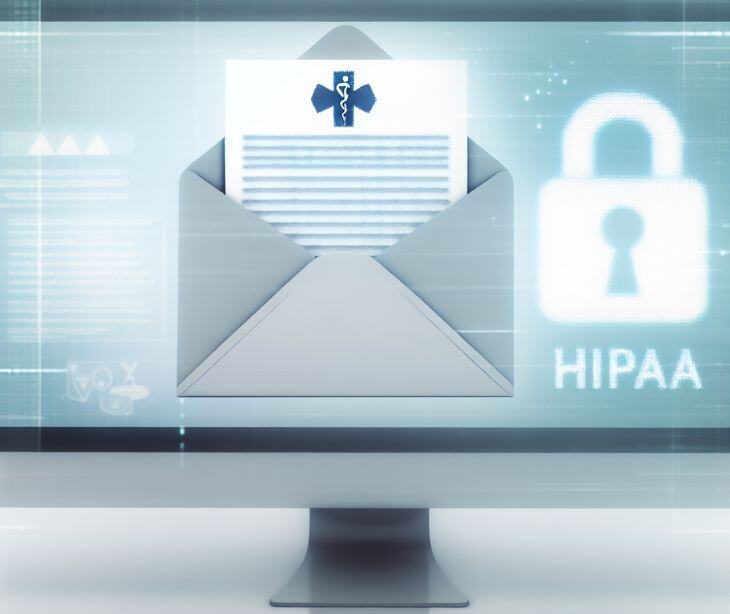
In its conventional form, email is not secure enough to transmit sensitive medical records. Standard email lacks inherent encryption measures to protect data throughout its transmission, making it vulnerable to interception, hacking, or unauthorized access.
The perceived convenience
“Email importance lies in its ability to transcend time zones, providing a platform for communication that accommodates diverse work schedules,” says DeskAlerts. Efficient communication is made possible with the use if email, which facilitates the exchange of information and leads to enhanced productivity and collaboration. Besides providing swift message conveyance, emails offer documented evidence that enables employees across different departments and locations to communicate effectively.
Email has undeniably revolutionized communication by offering instant connectivity and document sharing; however, the conventional form falls short of ensuring the secure transmission of highly sensitive medical records.
The convenience it offers is juxtaposed with significant security concerns, especially when handling confidential healthcare information. Healthcare professionals and organizations must prioritize secure alternatives that provide robust encryption and compliance with industry regulations to safeguard patient privacy and data integrity.
Related: Can you discuss health issues with patients via email?
Secure alternatives
To ensure the safeguarding of sensitive medical records, alternatives beyond conventional email are recommended.
Here are some alternatives that the healthcare industry can use:
Encrypted email services
Encryption: Unlike standard email, encrypted email services secure the data from the sender to the recipient. These services use robust encryption methods that prevent unauthorized access to the content of emails.
Authentication measures: These services often incorporate additional security measures, such as two-factor authentication, enhancing the overall protection of the communication channel.
Secure file-sharing platforms
Advanced encryption protocols: Platforms like ShareFile, Dropbox Business, or Google Workspace for Healthcare leverage advanced encryption protocols to safeguard transmitted files. They provide secure file storage and transmission, ensuring that medical records remain protected both in transit and at rest.
Access control and permissions: These platforms allow administrators to set granular access controls, restricting document access to authorized personnel only. This helps manage and monitor who can view, edit, or download sensitive records.
Dedicated healthcare communication systems
HIPAA-compliant solutions: Specialized platforms such as Paubox are designed explicitly for healthcare professionals and comply with HIPAA regulations. They offer secure messaging, file sharing, and communication tools tailored to the unique needs of the healthcare industry.
Secure collaboration features: These systems often include secure features like real-time messaging, video conferencing, and document sharing within a protected environment, ensuring seamless yet secure communication among healthcare providers.
Related: HIPAA Compliant Email: The Definitive Guide
Best practices
When handling medical records, adopting best practices becomes imperative:
- Encryption is key: Use encryption tools or services to protect data from unauthorized access.
- Secure communication platforms: Employ specialized platforms that comply with healthcare regulations for sharing medical information securely.
- Access controls: Implement stringent access controls to limit who can view and share sensitive records.
- Regular security audits: Conduct periodic assessments and updates to ensure systems remain robust and secure.
Go deeper: How to send HIPAA compliant emails
FAQs
What are the risks of sending medical records via email?
The main risks include:
- Interception: Unencrypted emails can be intercepted by cybercriminals.
- Unauthorized access: Emails can be accessed by unintended recipients if sent to the wrong address.
- Data breaches: Email servers can be compromised, leading to large-scale data breaches.
In the news: Email security breaches expose patient data at 2 major healthcare institutions
Is it possible to be compliant when transmitting medical records through personal email accounts?
Using personal email accounts is generally not compliant with HIPAA, as they typically lack the necessary security measures like encryption and access controls required to protect PHI.
How does data encryption work for emails containing medical records?
Data encryption transforms readable data (plaintext) into an unreadable format (ciphertext) using an algorithm and an encryption key. Only authorized parties with the correct decryption key can convert the ciphertext back into readable plaintext, ensuring the privacy of the medical records during transmission.
Subscribe to Paubox Weekly
Every Friday we'll bring you the most important news from Paubox. Our aim is to make you smarter, faster.





